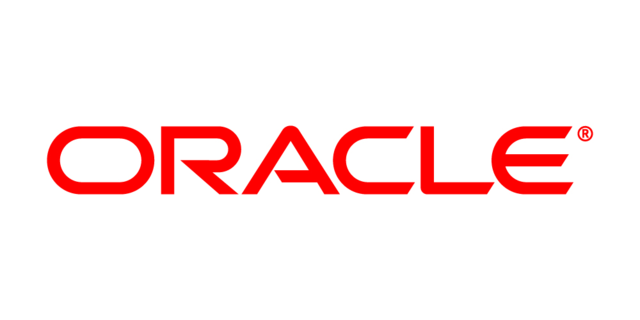Telecom
Zoom Taps Oracle Cloud to Support Dramatic User Surge

Zoom Video Communications has turned to Oracle Cloud Infrastructure to support its exponential growth, as the video-conferencing platform’s daily users spike to 300 million, up from 200 million, in a few weeks.

As the novel coronavirus (COVID-19) pandemic sweeps through the globe, governments have instituted lockdown regulations, resulting in companies and schools introducing remote working policies as a precautionary measure towards combating the spread of the virus.
As an essential ICT service provider that combines video-conferencing, online meetings, chat and mobile collaboration technology to global customers, demand for Zoom’s online video call service has dramatically surged since February.
The California-headquartered software company says it urgently required additional cloud infrastructure capacity, which has seen it select Oracle’s cloud platform, side-stepping Oracle rivals Alphabet’s Google Cloud, Amazon Web Services and Microsoft’s Azure Cloud.
The video-conferencing company says it selected Oracle for its advantages in performance, scalability and reliability.
Speaking at a virtual media briefing, Zoom CEO and founder Eric S Yuan said, after achieving full production capacity, Zoom is now enabling millions of simultaneous meeting participants on Oracle Cloud Infrastructure.
“We recently experienced the most significant growth our business has ever seen, requiring massive increases in our service capacity.
“We explored multiple platforms, and Oracle Cloud Infrastructure was instrumental in helping us quickly scale our capacity and meet the needs of our new users. We chose Oracle Cloud Infrastructure because of its industry-leading security, outstanding performance and unmatched level of support,” notes Yuan.
Oracle says its second-generation cloud infrastructure will help Zoom scale to continue to deliver an always-on service to its customer base, helping it adapt to its evolving business requirement.
“Video communications has become an essential part of our professional and personal lives, and Zoom has led this industry’s innovation,” says Oracle CEO Safra Catz.
“We are proud to work with Zoom, as both their cloud infrastructure provider and as a customer, while they grow and continue to connect businesses, people and governments around the world.”
The Oracle Cloud offers a suite of integrated applications for sales, service, marketing, human resources, finance, supply chain and automated second-generation infrastructure which features the Oracle Autonomous Database to automate tasks.
According to Catz, Oracle is well-positioned to enable Zoom’s rapid expansion and innovative video communications platform, due to its network architecture and capacity, combined with expertise in security and data centre locations.
Zoom says it is already transferring upwards of seven petabytes of data through Oracle Cloud Infrastructure servers each day, which is roughly equivalent to 93 years of high-definition video.
Meanwhile, Zoom faced mounting security issues as its user numbers surged, including opening up webcams to spies and sending user data to Facebook.
After multiple security and privacy issues raised by security firms, Yuan apologised to users, and assured them their meetings will be safe and secure after the firm worked around the clock to resolve its security issues.
Cyber security firm Kaspersky Lab later commented that Zoom seamlessly handled the tremendous workload increase and quickly reacted to security researchers’ discoveries.
Telecom
Airtel Recommits to Fraud Prevention after NCC’s N104m Fine for SIM Registration Breaches

Airtel Nigeria has restated its commitment to transparency, customer safety, and regulatory collaboration following recent regulatory enforcement by the Nigerian Communications Commission (NCC).

The NCC had served Airtel Nigeria a notice of sanction over some alleged SIM infractions in Kano State and consequently slammed a fine of N104 million on the telecommunications firm.
NCC had in a letter, addressed to Airtel Nigeria Chief Executive Officer, dated May 26, 2025, signed by Chizua Whyte, head, Legal and Regulatory Services, and Mohammed Dari, acting head, Compliance Monitoring and Enforcement, on behalf of Dr Aminu Maida, executive vice chairman, NCC, titled: ‘Notice of Sanction: Non-Compliance with SIM Registration Directive in Kano,’ where the infractions were spelt out.
According to NCC, Airtel infractions include unauthorised SIM registrations using 198 unapproved devices, resulting in 8,275 registrations outside the 281 verified Airtel shops; premature activation of 63 MSISDNs prior to proper SIM registration, contrary to the provisions of the Registration of Communications Subscribers Regulations 2022; failure to conduct effective eyeballing, leading to 407 fraudulent SIM registrations with multiple NINs, contrary to the provision of the Registration of Communications Subscribers Regulations 2022 and failure to provide satisfactory explanation for SIM registrations conducted between 12.00 a.m and 6.00 a.m.
On the matter, the letter revealed that there were some letter exchanges and subsequent meetings on the infractions between the telecom regulator and Airtel, starting from January 12, 2025, March 19, 2025, March 24, 2025, and March 27, 2025, respectively.
Apparently, after investigations and responses from Airtel, the NCC was not satisfied and this led to the fine of N104 million, which was to be paid within seven days from the date the letter was issued.
Specifically, NCC fined Airtel N5 million, N12 million, N81.4 million and N5 million for the infractions respectively.
Reacting, Airtel, expressed appreciation to the NCC for uncovering the infractions, describing the development as a critical opportunity to strengthen internal processes and further align with national security and regulatory expectations
“We thank the NCC for its vigilance and continued support in protecting the integrity of the telecoms ecosystem. Airtel takes these findings seriously and is already implementing corrective measures,” a spokesperson for the company said.
Only recently, Airtel Nigeria’s CEO recently announced that the company is doubling its investment in the country, focusing on network expansion, fiber-to-the-street rollout, 4G/5G deployment, customer care upgrades, and digital infrastructure security.
These investments reinforce Airtel’s long-term vision of building a resilient and forward-looking telecom network that meets the evolving needs of Nigerians.
“Our systems are constantly evolving to stay ahead of scammers and malicious actors,” the spokesperson added. “This is not just about compliance; it’s about our responsibility to the millions of Nigerians who rely on Airtel daily.”
Airtel Nigeria says it will continue to work closely with the NCC and other arms of government to ensure high standards of service and safety for all telecom users nationwide.
Telecom
Kenya Beats Nigeria As the Most Progressive ICT Regulation in Africa

Kenya is celebrating its regulatory ecosystem being ranked as the most progressive in Africa. The International Telecommunications Union (ITU) has ranked the East African country first in its most recent ICT Regulatory Tracker.

ITU’s ICT Regulatory Tracker is an evidence-gathering tool for decision-makers and regulators. It demonstrates the effectiveness of regulatory systems in the age of technology.
The ITU evaluates the design of the national regulatory authority, the scope of the regulatory mandate, the obtaining regulatory environment, and the robustness of the competition framework in member countries.
Kenya received 93 points, up from 92 in 2023, and now leads the continent in best practices for ICT regulations.
Nigeria and South Africa finished second and third, with 92 and 88 points respectively. Malawi, Egypt, Rwanda, Morocco, Uganda, Burkina Faso, and Senegal complete the top 10 list.
Globally, Kenya was ranked 20th out of 194 countries covered.Italy led the rankings, with 100 points.
The regulator, Communications Authority (CA) of Kenya, said the achievement underscored Kenya’s commitment to creating a robust, technology-neutral regulatory environment that supports innovation, affordability and access.
Steve Isaboke, permanent secretary for broadcasting and telecommunications, visited CA Centre in Nairobi following the announcement on Thursday.
“The ranking is a clear testament of the excellent work that CA has done in spearheading Kenya’s digital transformation and driving digital access for all,” he said.
“After 25 years, CA’s regulatory regime has attained maturity, and gained global recognition. This ranking shows that the CA staff and leadership are executing their work diligently.”
Telecom
MTN’s Female Leadership Surges to 41.4%, Doubles Industry Average

MTN Nigeria Communications PLC has announced a significant increase in female representation within its leadership, with women now making up 41.4% of its workforce, a notable rise from 38.7% in 2023.

This figure reportedly doubles the industry average, positioning MTN Nigeria as a frontrunner in gender diversity within Nigeria’s ICT sector.
The company’s recently released 2024 Annual Report highlights its sustained commitment to workplace inclusion and gender equality, aligning with its “Ambition 2025” strategy. Female representation within the executive management team has reached approximately 46.7%.
MTN Nigeria attributes this progress to dedicated initiatives aimed at empowering women professionally. These include the “Women in Tech” programme, which provides targeted upskilling in high-demand fields such as Cloud Computing, Software Engineering, AI/ML, Data Science, and Cyber Security.
The “MTN Y’ello Mums Internship Programme” also supports young mothers in their transition back into the corporate world after career breaks.
Odunayo Sanya, executive director of the MTN Foundation, was recognised as the CSI Personality of the Year at the Nigeria Tech Innovation & Telecoms Awards (NTITA), further underscoring the company’s impactful social initiatives.
Additionally, Uto Ukpanah, the company secretary, received the inaugural Global Corporate Secretary of the Year Award from the Corporate Secretaries International Association (CSIA).
Speaking at a recent conference, Odunayo Sanya, emphasised the importance of balancing profitability and sustainability equation, saying, “Businesses today need to be purpose-driven. While the soul of business is profitability, it is not profitability alone that should matter to stakeholders.”
Uto Ukpanah, added, “Showcasing our corporate values and ethos to the world opens the door for greater collaboration with other organisations, as we believe there’s a lot to learn when we all come together. Governance continues to evolve. The challenges today are not the same as they were 10 years ago. Greater accountability is expected, and companies can only continue to do better.”
The company’s broader efforts in diversity and inclusion have been acknowledged with multiple accolades, including the Corporate Responsibility Award. MTN Nigeria also received the “Employer of the Year” award at the 4th Edition of the Nigeria Employers’ Consultative Association (NECA) Employers’ Excellence Awards.
Karl Toriola, CEO of MTN Nigeria, in the report, reiterated the company’s commitment to building a purpose-driven organisation, emphasising that its success is intrinsically linked to its people and their dedication to a shared vision.
“Since we initiated our culture transformation journey in 2021, our culture transformation has significantly enhanced employee engagement and organisational cohesion. It’s directly strengthened our ability to deliver outstanding business performance and drive sustainable long-term value for all our stakeholders.”

 Telecom3 days ago
Telecom3 days agoTelcos Threaten to Disconnect Banks over Misinformation on New USSD Charges

 Telecom3 days ago
Telecom3 days agoMTN Nigeria Plans N900Bn in Service Upgrade

 General News3 days ago
General News3 days agoJumia Marks 13 Years of E-Commerce Innovation and Impact in Nigeria

 Telecom3 days ago
Telecom3 days agoTelecom Regulators in Africa Chart New Course for a Data-driven Future

 Broadcasting3 days ago
Broadcasting3 days agoNetflix Hikes Subscription Fees Again in Nigeria over “Market Conditions”

 News3 days ago
News3 days agoAbbas Jega, Ex-AMCON ED, Testifies, Says Arik Never Cooperated With AMCON

 Broadcasting3 days ago
Broadcasting3 days agoNBC, Nigcomsat Launch Satellite Plan to Transform Broadcasting

 E-Financial3 days ago
E-Financial3 days agoNDIC Calls for Inputs to IADI Core Principles for Effective Deposit Insurance




























